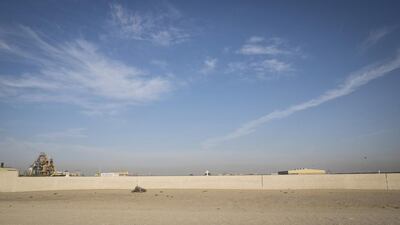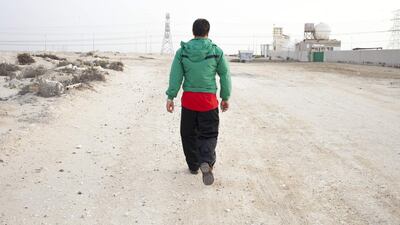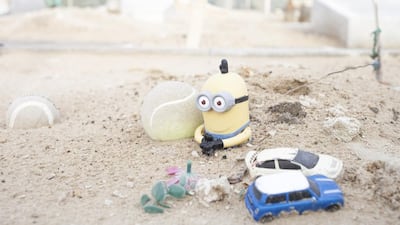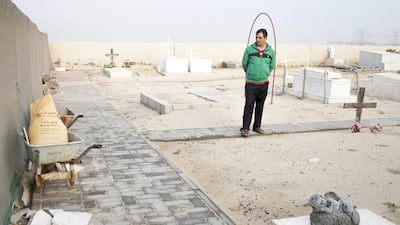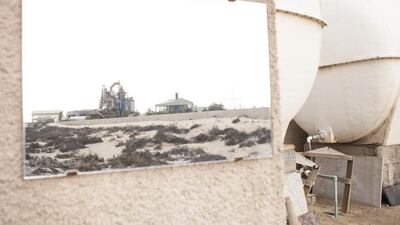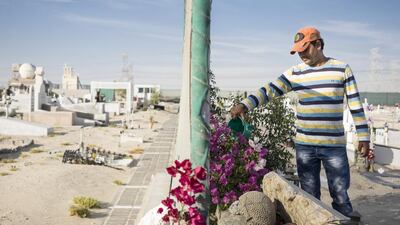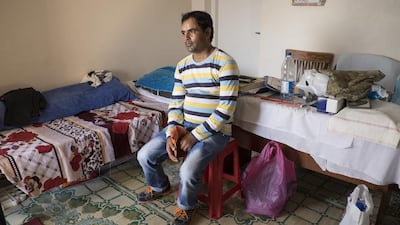Palanat Panthi has been living and working among the Christian dead for the past five years.
Where he lives there is no public transport, no grocery store and hardly any form of social life.
And looming nearby is Jebel Ali’s huge waste-treatment plant.
How he came to be here does not seem to faze him much. He makes more working this job in Dubai than he did as Nepalese soldier back in Kathmandu.
Palanat is the sole caretaker of the Christian Cemetery in Jebel Ali.
For most of the day, he tends to the dead. He digs graves, cleans up the dust and sand that constantly covers older gravestones and rearranges fallen toys or sentimental objects left behind by loved ones.
He then spends most of his working day killing time, watching television or reading in a makeshift, air-conditioned room.
But once a day, about 4.15pm, armed with an orange bucket, he tends to the living.
Palanat does his best to keep what little flora and fauna exists around gravestones alive, despite the odds. Jebel Ali’s industrial smog and infertile desert soil makes it hard for anything to thrive.
At the end of his eight-hour, solitary shift, he walks a brisk two minutes to his accommodation at the Hindu crematorium, which he shares with two Nepali colleagues.
They spend most nights cooking dal baht and passing the time until their next shift.
Once a month, they split a Dh100 taxi fare and head to Bur Dubai to socialise with other members of their community.
Palanat says that recently he buried a premature baby. I ask if the job ever saddens him.
“No,” he says, “It’s difficult, but it is just a job.”
* Razan Alzayani
